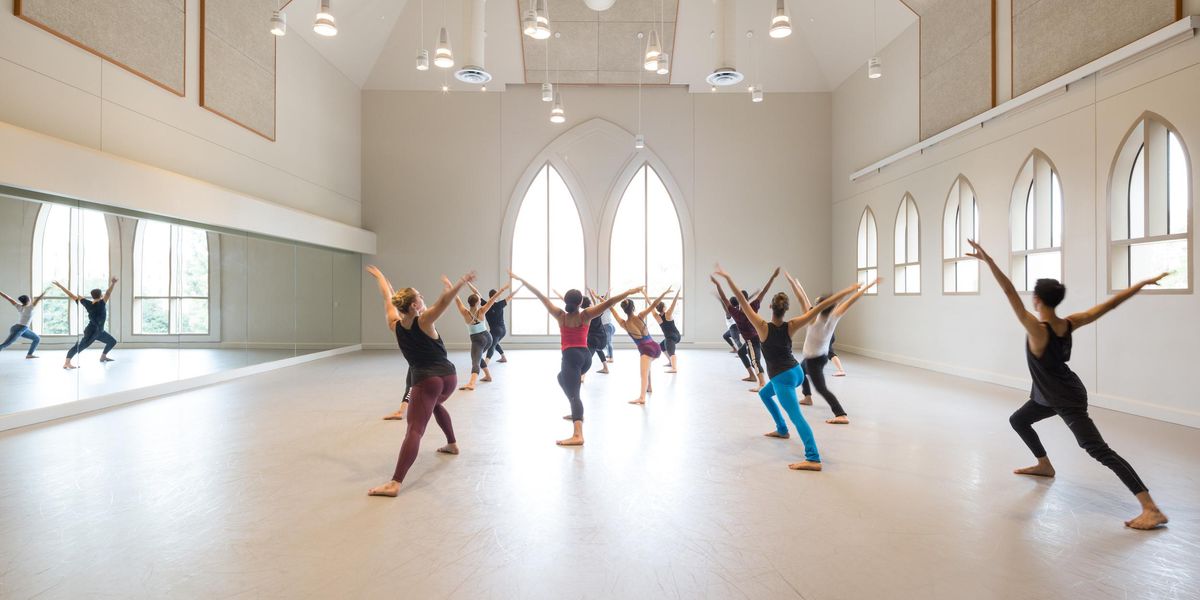The Resourceful Apprentice
Make the most of this
career-defining transition.
When Sarasota Ballet corps member Caroline Hennekes started her apprenticeship in 2014, it was a big shock. “Being in an adult world makes you grow up fast,” she says. An apprenticeship can be one of the hardest years of your career—as Hennekes learned, proving that you have the confidence and maturity to thrive in a high-pressure company is a lofty task for a first job.
But an apprenticeship is also a tantalizing glimpse of your future. You’ll dance alongside elite principals, perform world-famous rep and collect that all-important paycheck. If you handle it gracefully, you can set yourself up for success at promotion time.
Steffi Cheong, now an ODC company member, in rehearsal. Photo by Andrew Weeks, courtesy ODC.
Read the Room
“First we teach apprentices about work ethic and seniority,” explains Lindsay Fischer, who runs National Ballet of Canada’s apprentice program. Throughout a 41-week term, Fischer shepherds young dancers through daily technique class, rehearsals and performances as supers, in outreach demonstrations and as corps de ballet substitutes.
With such a heavy workload, apprentices need to learn the ropes quickly. Observing other dancers will give you a leg up on company etiquette. “You’re at the bottom of the totem pole,” says 18-year-old Hennekes. “At times I felt I needed to prove myself. It’s hard to do without being pushy.” She says to show you’re a team player by dancing towards the back of the room and letting senior dancers go first. “The point is for directors to see if you fit in. You’ll get noticed more if you’re working as part of the group, not as a soloist.”
But that doesn’t mean you should hide, especially when you’re given opportunities to explore your artistry. “Our rehearsals are invested in individual performance,” says Janet Eilber, artistic director of the Martha Graham Dance Company. “Apprentices are asked to think about their interpretive choices. Commitment to that process is what takes them from apprentice to New Dancer.”
Be Your Own Teacher
Apprentices are expected to pick up repertory without much hand-holding. Hennekes says it’s essential to absorb feedback given to others. “You have to take what they correct in other people and apply it to yourself.”
Sometimes apprentices do get corrected, and it can sting. “Rehearsing
La Sylphide,” Hennekes recalls, “I’d be called out: ‘Caroline, your head’s wrong.’ It can chip away at your confidence. But you learn that it’s just the process.”
She did ask a ballet master for guidance on vexing cabrioles in
La Fille mal gardée. “I approached him casually, once or twice after rehearsal,” she recalls. But, ultimately, companies prize dancers who solve problems on their own, freeing up staff to prepare casts for performance. Hennekes suggests asking for help from other dancers, who tend to be generous with advice.
Jump on Opportunities
Apprentices at small companies, like San Francisco’s ODC or the Martha Graham Dance Company, might perform featured roles—but they have to be ready. “We look for people who are proactive about absorbing what we do,” says Eilber. Over an apprenticeship lasting up to 20 weeks, Eilber wants to see “a desire to learn—researching roles before rehearsal, learning roles they haven’t been assigned.”
When Steffi Cheong apprenticed at ODC in 2013, her initiative paid off. She was thrust into the title role of
The Velveteen Rabbit, ODC’s holiday program, just two months into her apprenticeship. “I had learned it just in case,” she recalls. While the pressure was “terrifying,” she says, “it proved they could trust me.”
Set the Stage for a Promotion
As your apprentice contract ends, it’s natural to feel anxious about getting promoted. Directors understand that, says Eilber, who welcomes apprentices to meet with her but says “we’re so busy, we won’t necessarily take them aside to talk about the future.” If the protocol isn’t spelled out, ask an administrator how to schedule a check-in.
The transition from student to professional is challenging. But it can make you stronger physically, mentally and artistically. “Apprentices are the future,” Fischer says. “I try to set them up for a productive career.” It’s up to you to make the most of it.





